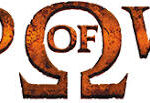
God of War symbol
| Symbol | God of War |
| Origin | The symbol's origin traces back to ancient civilizations, representing power, strength, and protection. |
| Meaning | It symbolizes the valor, courage, and determination needed in times of conflict and strife. |
| Appearance | Typically depicted as a combination of traditional Masonic symbols like the square and compass, intertwined with imagery associated with war such as swords, shields, or helmets. |
| Colors | Often portrayed in deep, bold colors such as red, black, and gold, symbolizing passion, strength, and prestige. |
| Usage | It's used within Freemasonry to convey allegorical teachings related to inner battles, self-improvement, and the struggle against evil. |
| History | The symbol's history intertwines with Freemasonry's rich heritage, evolving over centuries to incorporate various cultural influences and interpretations. |
| Popularity | Its popularity remains within Masonic circles, where it holds significance as a symbol of moral and spiritual development. |
| Importance | It holds profound importance within Freemasonry, serving as a reminder of the ideals and principles upheld by its members. |
| Complexity | The symbol's complexity lies in its multifaceted meanings, which encompass both literal and metaphorical interpretations related to war, morality, and spiritual growth. |
| Emotions | It evokes emotions of courage, determination, and reverence, prompting members to reflect on their personal battles and strive for inner strength and righteousness. |
-
- God of War Symbol: A Sign of Rage and War
The God of War symbol, though not singular throughout the series, is typically associated with the Omega symbol (Ω).This potent image carries several interpretations:
End and Transformation: The Omega signifies the end, potentially alluding to Kratos’ relentless pursuit of vengeance and its destructive nature. However, it can also symbolize personal transformation, as Kratos sheds his past self and seeks redemption.
Chaos and Brutality: The symbol’s sharp angles and bold presence evoke a sense of chaos and brutality, reflecting the game’s intense combat and unforgiving world.
Divinity and Power: As Kratos himself is a god, the Omega symbol reinforces his immense power and connection to the divine, even as he grapples with its burdens.
Evolution and Adaptation: Across different God of War titles, the symbol has seen variations, reflecting the evolving themes and Kratos’ own journey. This adaptability mirrors the character’s growth and the franchise’s ability to reinvent itself.
Remember, the God of War symbol is open to interpretation. Its meaning resonates with the player’s understanding of the character, the story, and the very nature of war and its consequences.